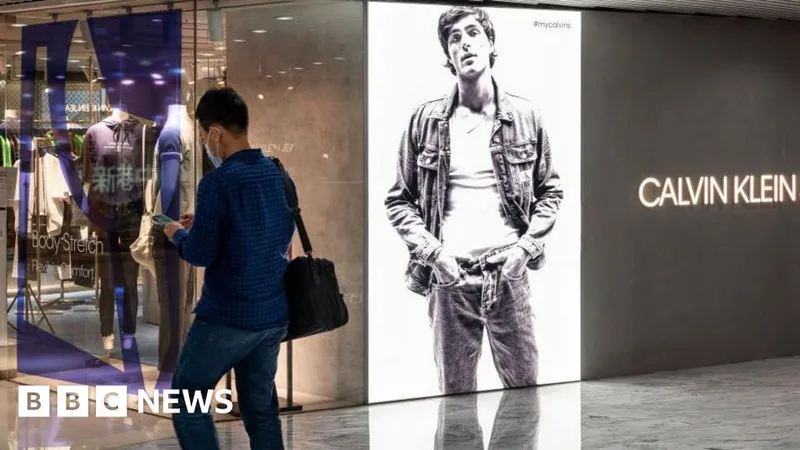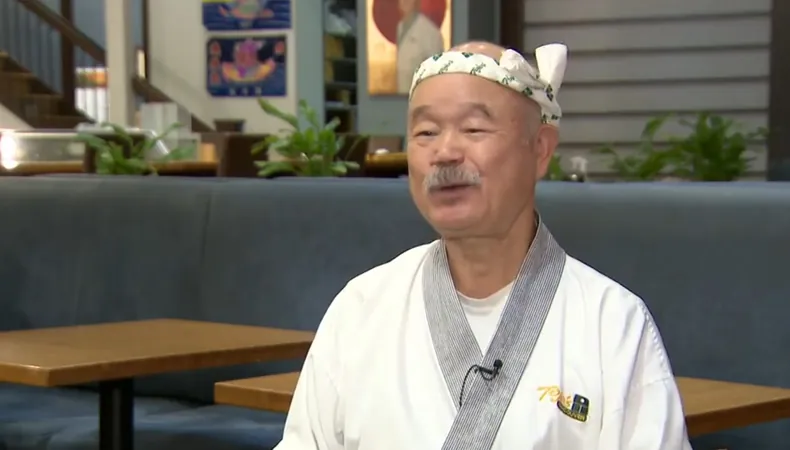
Shocking Move: China Investigates Calvin Klein Over Xinjiang Cotton Controversy!
2024-09-25
Introduction
China has officially launched an investigation into PVH Corp, the parent company of the well-known US fashion brands Tommy Hilfiger and Calvin Klein, for allegedly implementing 'discriminatory measures' against cotton sourced from Xinjiang. This bold step represents China's commitment to counter escalating accusations from Western officials and human rights advocates, who claim that cotton and numerous products from the region are tainted by forced labor involving the Uyghur ethnic minority.
Investigation Context
In a significant escalation, the US government imposed a ban on imports from Xinjiang back in 2021, invoking serious concerns over human rights abuses. China's Ministry of Commerce has accused PVH of unjustly 'boycotting Xinjiang cotton without factual foundation.' This claim adds new dimensions to the deteriorating relationships between China and Western nations.
PVH's Position and Implications
PVH has remained silent on the details of the investigation, but previously, they have asserted their compliance with local laws, including the stringent guidelines set forth by the US concerning Xinjiang raw materials. The company has now been given a 30-day deadline to address the accusations posed by Chinese authorities. Failure to satisfactorily respond could result in PVH being designated as an 'unreliable entity' by the Chinese government, amplifying fears of potential commercial repercussions.
Geopolitical Considerations
In the wake of increasing tensions between China and Western nations over various issues—including technology transfer, electric vehicles, and manufacturing—the stakes for PVH could be high. A spokesperson from the Ministry of Commerce emphasized that the current investigation is not a retaliation against the US's recent proposals targeting Chinese electric vehicle technologies and assured that 'honest and law-abiding foreign entities have nothing to worry about.'
Expert Insights
Experts, like Cullen Hendrix from the Peterson Institute of International Economics, suggest that while the timing of this investigation may seem puzzling, it likely signals a broader trend of China asserting its influence over international companies. He assessed that this could tarnish PVH's reputation among Chinese consumers—something that might send a chilling warning to other global firms about the consequences of bending to Western viewpoints.
Supply Chain Repercussions
The ongoing geopolitical tug-of-war is poised to have repercussions beyond merely defense and technological sectors. 'These tensions can easily spill over,' Hendrix stated, highlighting the increased complexity of supply chains that could impact various industries amid growing scrutiny from both sides.
Investor Risks
Moreover, in its annual disclosures, PVH has already cautioned investors about potential risks tied to the Xinjiang cotton issue. They acknowledged the significant international scrutiny their operations face, which is echoed in a report released by the Australian Strategic Policy Institute identifying numerous companies purportedly linked to labor violations in the region, where PVH was explicitly mentioned.
Company Overview and Future Outlook
With more than 29,000 employees worldwide, PVH generates over 65% of its sales outside the US. The company's legacy now hangs in the balance as it navigates these treacherous waters amidst a climate of intensified geopolitical tension—an evolving drama that could change the landscape of global fashion forever. Will PVH withstand the pressure, or will it fall victim to the escalating conflict over human rights and trade? The world is watching closely!









 Brasil (PT)
Brasil (PT)
 Canada (EN)
Canada (EN)
 Chile (ES)
Chile (ES)
 España (ES)
España (ES)
 France (FR)
France (FR)
 Hong Kong (EN)
Hong Kong (EN)
 Italia (IT)
Italia (IT)
 日本 (JA)
日本 (JA)
 Magyarország (HU)
Magyarország (HU)
 Norge (NO)
Norge (NO)
 Polska (PL)
Polska (PL)
 Schweiz (DE)
Schweiz (DE)
 Singapore (EN)
Singapore (EN)
 Sverige (SV)
Sverige (SV)
 Suomi (FI)
Suomi (FI)
 Türkiye (TR)
Türkiye (TR)